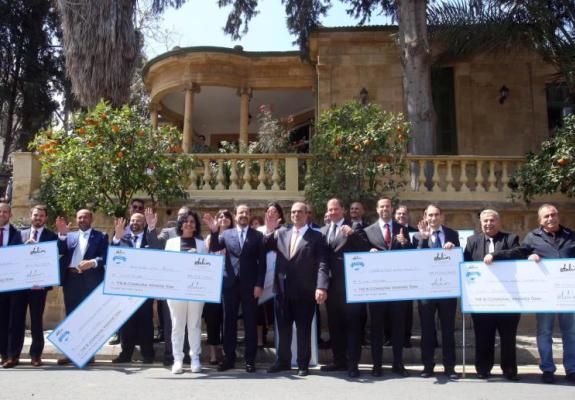Energy Renovation Projects Announced by Ministry of Energy
Sustainable Energy Projects in Residences and Businesses
The Ministry of Energy, Commerce, and Industry is advancing the preparation of standard procedures for the announcement and implementation of energy renovation projects. Simultaneously, the Ministry is revising the energy-saving Grant Schemes for residences and businesses to facilitate such projects, as stated by Minister George Papanastasiou.
Addressing the Annual General Meeting of the Cyprus Association of Energy Saving Businesses, Papanastasiou acknowledged that most businesses in Cyprus might lack the specialized knowledge to fully appreciate the benefits of comprehensive energy renovation projects.
The Ministry has announced Grant Schemes, funded by the RES and Energy Conservation Fund, with a total budget exceeding €215 million for 2022-2025. These schemes cover subsidies for roof thermal insulation, photovoltaic system installation in residences, solar water heating system replacement, charging electric vehicles from RES, and energy upgrades for local government buildings and infrastructures. The popularity of these schemes is evident, with the Fund receiving an average of over 1500 applications per month.
Papanastasiou also introduced a new scheme focused on installing roof thermal insulation in homes of vulnerable consumers. This scheme will include roof thermal insulation combined with solar panel installation for self-consumption using net-metering and net-billing methods, ultimately reducing energy costs.
Furthermore, the Minister discussed a scheme for energy-saving and upgrading enterprises and NGOs, alongside a corresponding scheme for residential buildings. Additional budget has been allocated for the residential scheme, and an SME Scheme is being amended to garner more interest. Concurrently, a new plan for large enterprises is being launched.
The Minister also mentioned various measures and policies aimed at reducing energy consumption. These include establishing a One-Stop-Shop for energy renovation projects, licensing RES projects, imposing obligations on large energy distributors to achieve annual targets benefiting consumers, installing smart meters, replacing street lighting with more energy-efficient alternatives, and adopting informative measures.

Moreover, today, the Parliamentary Committee on Energy discussed amendments to the legislation governing the Renewable Energy Sources Fund. The discussion, initiated by the proposal of DIKO's Members of Parliament, Chrysis Pantelides and Panikos Leonidou, aimed to enable funding for the installation of photovoltaic systems for beneficiaries of the "Photovoltaics for All" plan. With this amendment, the fund could cover the entire investment, which would subsequently be repaid in installments through the electricity bill.
After the meeting, the Committee's President and DISY MP, Kyriakos Hatzigiannis, stated that the proposal by DIKO MPs is a correct and necessary regulation for the plan's utilization. "We will proceed with it, listen to the Legal Service's positions, and if no significant issues arise, we can move forward," he said. However, he expressed concern that this law might lead to excessive charges on electricity bills.
Chrysis Pantelides, MP of DIKO, expressed satisfaction with the positive response from all parties. "We hope for the quickest possible conclusion of the discussion so that the proposal can be brought to the Plenary for voting," he added. Responding to journalists' questions, he anticipated the amendment's passage in February, coinciding with the finalization of the "Photovoltaics for All" scheme.
In response to a question about the specific proposed amendments, Mr. Pantelides answered that the initial law regarding the renewable energy sources fund did not anticipate a scheme like "Photovoltaics for All," which involves the fund paying for a household's photovoltaic installation and then recollecting the money in installments via the electricity bill.
Regarding the scheme's promotion, he noted that public consultation with all stakeholders has begun and is also available online, but the fund's ability to distribute and recollect funds requires the proposed amendment. "I hope that by February, it will be brought to the Plenary, allowing the scheme's implementation simultaneously with its completion," he said.
Answering a question about whether the total bill, including the installment, would be lower or higher than the current one, he said the goal is for the bill to be lower than it is now, even with the installment, and significantly lower without the installment.






